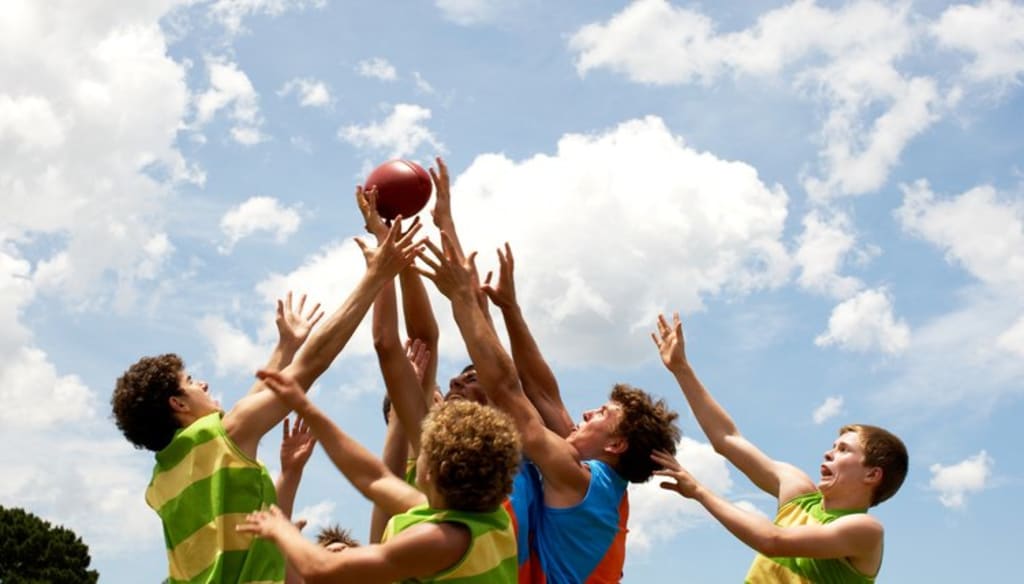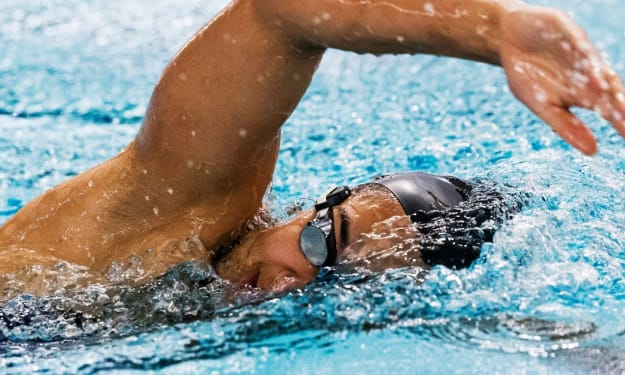The Impact of College Sports on Academics
by David Pieringer

The Impact of College Sports on Academics
College sports have long been a cornerstone of American higher education, playing a significant role in campus culture and community identity. However, the impact of college sports on academics has been a contentious issue, sparking debates among educators, administrators, and students. This analysis aims to explore the multifaceted relationship between college sports and academics, examining both the positive and negative influences. It will cover areas such as academic performance of student-athletes, resource allocation, campus culture, and policy implications.
Academic Performance of Student-Athletes Balancing Dual Roles
Student-athletes are often required to balance rigorous academic schedules with demanding training and competition commitments. This dual role can have varying impacts on their academic performance. Research indicates that time management skills, discipline, and support systems are critical in determining academic success among student-athletes. While some thrive under the structured environment, others struggle to keep up with academic responsibilities.
GPA and Graduation Rates
Studies have shown mixed results regarding the GPA and graduation rates of student-athletes compared to non-athletes. For instance, the NCAA reports that the overall graduation rates for student-athletes are comparable to, or in some cases higher than, those of the general student body. However, disparities exist across different sports and divisions. High-profile sports like football and basketball often exhibit lower academic performance due to the high demands and pressures associated with these programs.
Resource Allocation
Financial Implications
The financial implications of college sports are significant, affecting resource allocation within universities. High-revenue sports such as football and basketball can generate substantial income, which is often reinvested into athletic programs, facilities, and scholarships. However, this can lead to a disproportionate allocation of resources, where academic departments and non-revenue sports receive less funding. This imbalance can affect the quality of education and the overall academic mission of the institution.
Scholarships and Academic Support
Athletic scholarships provide opportunities for many students who might not otherwise afford higher education. These scholarships often come with academic support services, such as tutoring and mentoring, which can enhance the academic experience of student-athletes. However, the emphasis on maintaining athletic eligibility sometimes leads to a focus on easier courses or majors, potentially limiting the academic and professional growth of student- athletes.
Campus Culture and Identity
School Spirit and Community Engagement
College sports significantly contribute to school spirit and community engagement. Athletic events foster a sense of pride and belonging among students, alumni, and local communities. This positive atmosphere can enhance the overall college experience and create a supportive environment for academic pursuits. However, an overemphasis on sports can overshadow academic achievements and lead to a culture where athletic success is valued more than academic excellence.
Academic Integrity and Scandals
The pressure to succeed in sports can sometimes compromise academic integrity. Instances of academic fraud, where student-athletes receive preferential treatment or grades, have marred the reputation of several institutions. These scandals not only affect the credibility of the academic programs but also raise ethical concerns about the role of sports in higher education.
Policy Implications
NCAA Regulations
The NCAA plays a crucial role in regulating college sports and ensuring that student-athletes receive a quality education. Policies such as the Academic Progress Rate (APR) and the Graduation Success Rate (GSR) are designed to hold institutions accountable for the academic performance of their athletes. While these measures have led to improvements, critics argue that they do not go far enough in addressing the underlying issues of commercialization and exploitation in college sports.
Institutional Reforms
Some universities have implemented reforms to better integrate athletics with academics. These include limiting practice hours, ensuring faculty oversight of academic support for athletes, and promoting a balanced student-athlete experience. Such reforms aim to uphold academic standards while allowing students to benefit from athletic participation.
Conclusion
The impact of college sports on academics is complex and multifaceted. While college sports can enhance the college experience, foster school spirit, and provide opportunities for student- athletes, they also pose challenges related to academic performance, resource allocation, and institutional priorities. Balancing the benefits and drawbacks requires ongoing efforts from educators, administrators, and policymakers to ensure that the academic mission of higher education is not compromised. As college sports continue to evolve, it is essential to keep the focus on the holistic development of student-athletes, ensuring that their educational needs are met alongside their athletic pursuits.
Detailed Analysis
Academic Performance and Pressure
One of the central issues concerning the impact of college sports on academics is the academic performance of student-athletes. The rigorous schedule of practices, games, and travel can significantly limit the time available for academic pursuits. This section delves deeper into how this pressure affects academic outcomes.
Time Management and Support Systems
Successful student-athletes often cite effective time management as a key to balancing their dual responsibilities. Universities typically provide resources such as academic advisors, tutors, and study halls specifically for athletes. These support systems can mitigate the negative impact on academic performance by helping athletes manage their time more
effectively. However, the effectiveness of these support systems varies widely between institutions and sports.
Course Selection and Major Choices
Another critical aspect is the tendency of student-athletes to cluster in certain majors or select less demanding courses to maintain their athletic eligibility. This phenomenon, often referred to as "academic clustering," can limit the educational and professional opportunities available to athletes post-graduation. Studies have shown that student-athletes in high-revenue sports are more likely to enroll in majors perceived as less rigorous, which may not align with their long-term career interests.
Financial Considerations
The financial dynamics of college sports are a double-edged sword. On one hand, successful athletic programs can generate significant revenue, enhancing the institution's financial health and providing funds for scholarships and facilities. On the other hand, the prioritization of revenue-generating sports can divert resources away from academic programs and non- revenue sports.
Revenue Distribution
Revenue from college sports, particularly football and basketball, often supports not only the athletic department but also various institutional initiatives. However, the distribution of this revenue is a point of contention. Critics argue that too much money is funneled into maintaining and expanding athletic programs, which can detract from funding for academic research, faculty salaries, and educational resources.
Athletic Scholarships
Athletic scholarships are a significant benefit for student-athletes, offering them access to higher education that might otherwise be financially out of reach. These scholarships often come with additional academic support, which can positively impact the educational outcomes for student-athletes. However, the emphasis on athletic performance to maintain these scholarships can sometimes overshadow the academic aspirations of the students.
Campus Culture and Identity
The cultural impact of college sports extends beyond the playing field, influencing the identity and values of the institution. This section explores how sports shape campus culture and the potential consequences for academic priorities.
Enhancing School Spirit
College sports events are major social activities that bring together students, alumni, and local communities. The sense of pride and unity generated by successful athletic programs can enhance the overall campus experience, creating a vibrant and engaged student body. This positive environment can indirectly benefit academics by fostering a supportive community. Risks of Overemphasis on Sports
However, the overemphasis on athletic success can also have negative consequences. When sports dominate the campus culture, academic achievements and intellectual pursuits may receive less recognition. This can create an environment where students prioritize sports over academics, potentially diminishing the institution's academic reputation.
Academic Integrity Issues
The pressure to maintain athletic success can sometimes lead to breaches in academic integrity. High-profile cases of academic fraud and preferential treatment for athletes have highlighted the risks associated with integrating sports and academics.
Case Studies of Academic Scandals
Several universities have faced scandals involving academic misconduct to benefit athletes. These cases often involve altering grades, providing unauthorized assistance, or enrolling athletes in courses with little academic rigor. Such scandals not only damage the reputation of the institutions involved but also raise ethical questions about the role of athletics in education.
Preventative Measures and Best Practices
To combat these issues, some institutions have implemented strict policies and oversight mechanisms. These include rigorous academic monitoring, independent audits, and fostering a culture of academic integrity. Promoting transparency and accountability in academic support for athletes is crucial in maintaining the credibility of the educational programs.
Policy Implications and Future Directions
Addressing the impact of college sports on academics requires comprehensive policy measures at both institutional and national levels. This section explores the current regulatory framework and suggests future directions for policy development.
NCAA's Role
The NCAA has established several policies aimed at balancing athletics and academics, such as the APR and GSR. These metrics are designed to ensure that student-athletes make satisfactory academic progress and graduate within a reasonable timeframe. While these initiatives have led to improvements, there is ongoing debate about their effectiveness and the need for more stringent regulations.
Criticisms of Current Policies
Critics argue that the NCAA's policies do not sufficiently address the commercial pressures and potential exploitation of student-athletes. The emphasis on maintaining eligibility rather than academic excellence can lead to a "bare minimum" approach to education. Furthermore, the economic disparities between different sports and divisions can result in unequal academic support and opportunities for athletes.
Institutional Reforms
Individual institutions play a crucial role in shaping the academic experiences of student- athletes. Innovative reforms can help integrate athletics more effectively with academics.
Limiting Practice Hours
One proposed reform is to limit the number of hours student-athletes can dedicate to sports each week. This would provide them with more time to focus on their studies and reduce the risk of burnout. Ensuring that student-athletes have adequate time for rest, academic work, and social activities is essential for their overall well-being and academic success.
Faculty Oversight
Enhancing faculty oversight of academic support programs for athletes can ensure that these programs prioritize educational outcomes over athletic performance. Faculty involvement can
help maintain academic standards and provide a balanced perspective on the needs of student- athletes.
Conclusion
The relationship between college sports and academics is intricate, encompassing a range of positive and negative impacts. College sports can enhance the college experience, promote school spirit, and provide educational opportunities for student-athletes. However, they also present challenges related to academic performance, resource allocation, and institutional priorities.
Balancing these factors requires a concerted effort from all stakeholders, including educators, administrators, policymakers, and the NCAA. By implementing thoughtful reforms and maintaining a focus on the holistic development of student-athletes, institutions can ensure that the benefits of college sports extend beyond the playing field and contribute to the broader educational mission.
Future Research Directions
To further understand the impact of college sports on academics, future research should explore the long-term career outcomes of student-athletes, the effectiveness of various academic support programs, and the impact of recent NCAA policy changes. Additionally, comparative studies between institutions with different levels of athletic emphasis could provide insights into best practices for integrating sports and academics. By continuing to investigate these areas, researchers can contribute to developing strategies that maximize the benefits of college sports while minimizing their drawbacks.
About the Creator
David Pieringer
Welcome to my page! I'm a dedicated writer and student with a passion for both education and sports. Balancing my love for learning with my athletic pursuits, I strive to excel in everything I do.
Enjoyed the story? Support the Creator.
Subscribe for free to receive all their stories in your feed. You could also pledge your support or give them a one-off tip, letting them know you appreciate their work.






Comments
There are no comments for this story
Be the first to respond and start the conversation.